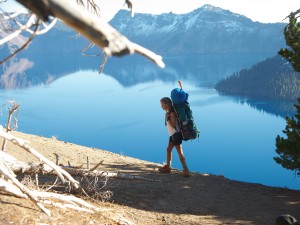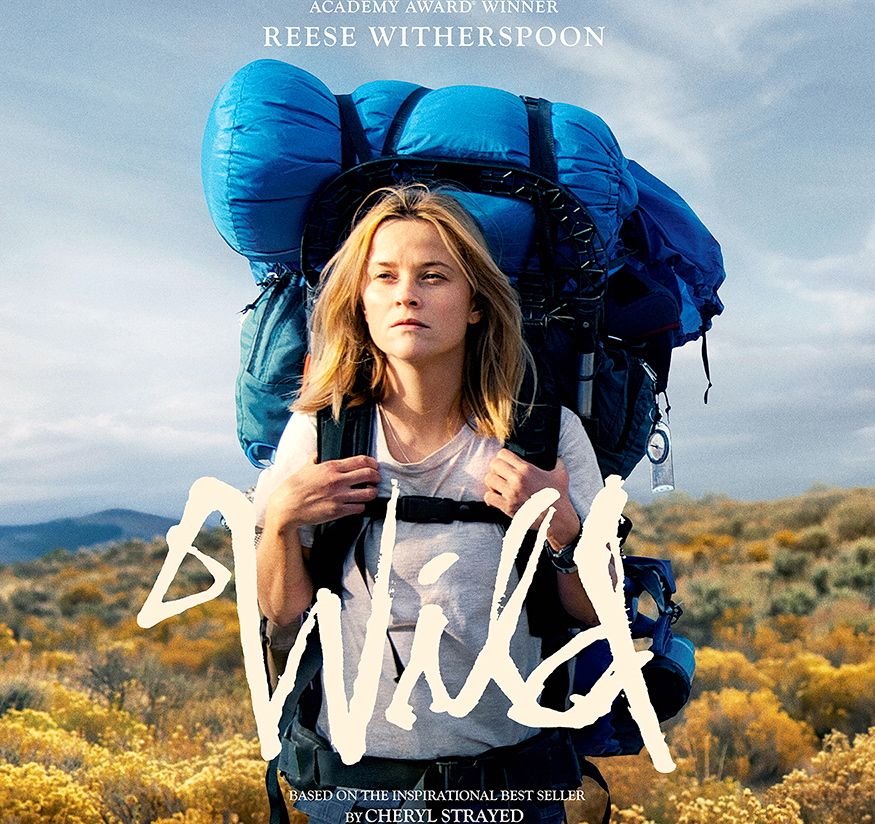I’m a huge Reese Witherspoon fan. That’s why when I got the chance to see Wild, the movie about Cheryl Strayed’s three-month long hike across the Pacific Crest Trail (PCT), I took it. And I wasn’t sorry. In fact, I liked the movie so much that I read the book too.
I’m not an outdoorsy kind of person but that story made me want to be. Although Strayed never minimized the difficulties of her journey – she often mentioned the pain, fatigue, hunger, loneliness and dangers involved – it sounded like an amazing chance to empower herself. Which was the whole point. Strayed was seeking a way to rid herself of her grief over her mother’s death and the demons that had been chasing her as a result of it. She was also trying to find out how to be the woman her mother raised and that included being a proud feminist.
Wild is one of the first mainstream movies I’ve seen which not only uses the word feminist in a  positive context but also shows what it looks like to be one. Both Strayed and her mother, Bobbi, were women’s studies majors and discussed great feminist authors. They had a strong emotional connection to each other, so much so that when Bobbi died unexpectedly of cancer at a young age, Strayed fell apart. Not only did she miss her mother (a common feeling that, oddly, is rarely portrayed in a popular culture filled with missing mothers) but she also had to deal with the tragedy of a life unlived. Because of her early marriage and young motherhood, Bobbi was just starting to live for herself when she died.
positive context but also shows what it looks like to be one. Both Strayed and her mother, Bobbi, were women’s studies majors and discussed great feminist authors. They had a strong emotional connection to each other, so much so that when Bobbi died unexpectedly of cancer at a young age, Strayed fell apart. Not only did she miss her mother (a common feeling that, oddly, is rarely portrayed in a popular culture filled with missing mothers) but she also had to deal with the tragedy of a life unlived. Because of her early marriage and young motherhood, Bobbi was just starting to live for herself when she died.
Strayed found solace in drugs and sex and it was only after having to terminate an unwanted pregnancy (without all the tumultuous hoopla that generally accompanies most portrayals of abortion) that she decided to help herself. And so she moved forward to demonstrate incredible mental and physical toughness on the PCT. Strayed faced down her fears, mustered up creative solutions, and read books to keep her mind occupied. To keep down the weight of her pack, she had to burn books after she’d read them, but feminist Adrienne Rich’s Dream of a Common Language was the only book she kept intact the entire time.
Strayed depicted her journey in a manner reminiscent of a human being and not necessarily that of a woman. She thought about, prepared for and eventually had sex with someone she desired. She lugged the heaviest backpack on the trail (none of the hikers she encountered could believe its weight) and endured nature’s challenges, wildlife and other obstacles just like anyone would. However, she did have to eventually confront both the benefits and drawbacks of being a solo woman hiker.
Although she didn’t realize it at first, there were many times that people gave Strayed help along the way because she was a woman. It was only after a trio of young men pointed out that no one gave them anything that she understood the ways in which her youth, gender, vulnerability and perhaps beauty had prompted people to provide assistance. Of course, not all of these offers of help came without strings and she had to put up with the “kindness” of men who offered assistance with the hope of something in return. In addition to receiving the benefits of her gender – and this is where both the book and the movie excelled – Strayed also drew an excellent portrait of just how vulnerable being a woman alone made her.
Every time she met a man or a group of men along the PCT (which happened much more frequently than meeting women), she had to go slowly and look for ways to protect herself. Luckily, most of the men were friendly but there was one encounter which beautifully encapsulated why so many women fear men’s violence. Strayed was camping by a trailside pond near the end of her hike when she ran into two male bow hunters. She helped them with water and afterwards they commented suggestively on her vulnerability and her body.
Her comments about this were some of the truest I’ve ever read about such a situation, in which women know that our whole lives could change as a result of sexual violence: “…what felt like a great clanging in my head…was the realization that my whole hike on the PCT could come to this. That no matter how tough or strong or brave I’d been, how comfortable I’d come to be with being alone, I’d also been lucky, and that if my luck ran out now, it would be as if nothing before it had ever existed, that this one evening would annihilate all those brave days.”
So she did what most women in our culture would do. When one of the men demanded she thank him for complimenting her on her appearance, she hid her anger and fear and complied. Despite her independence, strength and self-confidence, in the face of overwhelming force, Strayed became passive, repressing her true feelings in the hopes of avoiding a man’s anger. She succeeded. Once the hunters left, she packed up everything in a hurry and fled into the night, forced to camp somewhere less comfortable in an effort to feel safe from the privileged behavior of men.
Fortunately, that incident was just one night in a 90-day voyage of self-discovery and Strayed managed to find what she had been searching for: acceptance, healing, and emotional tranquility. Plus she got to see incredible vistas, meet wonderful people and interact closely with nature in ways most people never will. Her journey was inspiring and empowering and we need more narratives like it. I hope that other women will see it the way I did and perhaps make such a journey of their own.

